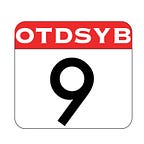The Battle of Agincourt
This story shall the good man teach his son; And Crispin Crispian shall ne’er go by, From this day to the ending of the world, But we in it shall be remembered- We few, we happy few, we band of brothers; For he today that sheds his blood with me shall be my brother…
William Shakespeare
Henry V, Act IV, Scene iii
Today is October 25, 2017, and on this date, 602 years back, in 1415, the French and the English fought in the Battle of Agincourt.
The Battle of Agincourt is important for several reasons from military technology to modern pop culture. Just two nights ago, on The Walking Dead’s season premiere episode Mercy, King Ezekiel made a reference to it.
The Hundred Years’ War, fought between England’s House of Plantagenet and France’s House of Valois, had begun in 1337. Essentially, the rival houses were fighting over the French Throne, with each side having a fair claim. In 1316 the French had made it official that no woman could ascend to the throne. Then, in 1328, French King Charles IV died without a male heir. Charles’ closest male relative happened to be King Edward III of England. This was because Edward’s mother was Isabella, Charles’ sister. Thus Edward was Charles’ nephew.
Isabella claimed the French throne for Edward III, only for the French to deny the claim. Philip of Valois, a Count, and Charles IV’s first cousin then took the throne for himself, establishing a new line of succession.
Edward III and the English did not force the issue. For the next nine years, there was relative peace between the two kingdoms. This fell apart when King Philip allied with Scotland in the Second War for Scottish Independence against England. This act caused Edward III to again make a claim to the French throne, which led to the lengthy war.
The Hundred Years’ War actually spanned from 1337 to 1453, and was not perpetual during this span. There were two times of peace (1360–1369 and 1389–1415) dividing the war into three segments: the Edwardian War, the Caroline War, and the Lancastrian War.
The Battle of Agincourt was fought near the outset of the Lancastrian War. Henry V Of England became King in 1413, and by August 1415 he sailed to invade France. First, his Army sieved And captured Harfleur, then Henry marched his army across the countryside toward Calais.
Near Agincourt, Henry’s forces were met by the French army. It would be the first open battle of the newly resumed war.
The English forces had suffered greatly during the siege of Harfleur. Many men died from disease and malnourishment. The march toward Calais only compounded the problems for the English.
At Agincourt, the I’ll-prepared English found themselves heavily outnumbered by the French. Precise numbers cannot be obtained, but estimates hold that the French had at least a 4:3 advantage, and it could have been as high as 6:1. Needless to say, the English didn’t stand a chance.
The battle occurred on October 25, St. Crispin’s Day, a feast day dedicated to the martyred twins Crispin and Crispinian. Before the battle, Henry V spoke to his troops, to rally them, and that speech was dramatized by Shakespeare in his history Henry V, and will forever be known as The St. Crispin’s Day Speech. In it, Shakespeare popularized the phrase “band of brothers”. To this day, the speech remains a rallying cry for all hose set against long odds, and is frequently used in pop culture such as The Walking Dead.
Despite the seemingly impossible odds the English did have at their disposal the English longbow, the best ranged weapon available at the time at their disposal. Archers comprised nearly 80% of Henry’s army. This was not only an equalizer, but it won the battle for them.
By the end of the day, the English stood victorious. The English decimated the French forces at a rate of 10 French casualties for each English casualty. It was one of the most stunningly lopsided wins by a smaller force in history.
It was a devastating defeat for the French in every way. However, with the winter coming, they were afforded time to regroup. Still, the English made steady gains in France, both politically and militarily, over the next decade. By 1429, a young girl named Joan would rally the French army and turn the tide of the war against the English. Ultimately, the English would lose their claims to France’s throne and lands.
Thanks for reading and be sure to check back tomorrow for the start of a national craze that revolutionized industrial transport and travel in America.
Creating quality content on a daily schedule requires a massive commitment, and my desire is to not only do that, but expand into even more mediums (audio podcasts, web videos, etc.). If you enjoy these posts, or would like for them to be available in other formats, please consider supporting me on Patreon. Just $1 a month will help a ton, as well as get you access to exclusive content. Thanks.
